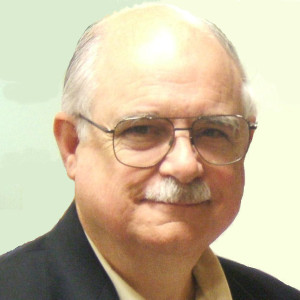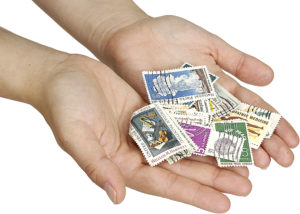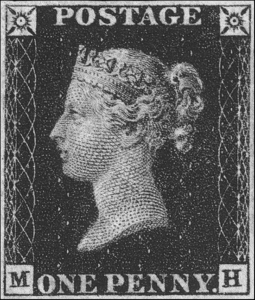By John M. Hotchner
I once traveled professionally with a lady who said she loved traveling so much that when she landed at a foreign airport, she’d look up in the sky and see an airplane, and wish she were on it! I wasn’t that rabid, but I did love traveling to experience other countries; their peoples, languages, history, food, attitudes, practices, etc. And to compare what I saw on the ground with what I knew of their philatelic history.
 And I feel the same way about stamps. If money and time were not an issue I would collect the entire world. That’s how I started out collecting 70 years ago, but as a matter of practicality I had to whittle my efforts down to about 25 countries that I still play with today. A few are serious collections with errors, plate varieties, multiples, sheet markings, covers, and other fodder of the specialist; but most are simply fill-in-the-blank album collections that I enjoy.
And I feel the same way about stamps. If money and time were not an issue I would collect the entire world. That’s how I started out collecting 70 years ago, but as a matter of practicality I had to whittle my efforts down to about 25 countries that I still play with today. A few are serious collections with errors, plate varieties, multiples, sheet markings, covers, and other fodder of the specialist; but most are simply fill-in-the-blank album collections that I enjoy.
Yet all stamps are fascinating when you get behind the design, and study the printing methods and the usages of the stamp and the ways it could be cancelled. I’ve enjoyed my collecting choices but if I had to do it all over again, I believe I’d opt for the world 1840-1940, with some selected issues beyond.
Another approach was taught to me by a lady named Alma Snowa, of Richmond, Virginia, whom I got to know in the 1970s. Alma answered the “What do you collect?” question with a wonderful three-word response: “Any given stamp.”
 She chose not to be boxed in by countries, dates, subjects, or art form. When it came to choosing stamps for her collection, she couldn’t provide a want list. Looking over dealer stocks, or club auction lots, stamps or sets would say to her, “Buy me.” Sometimes she knew why, and other times she didn’t, but more often than not, her response was “Absolutely!” She was not trying to build a complete or valuable collection. Rather she was engaged in maximizing her enjoyment of her hobby.
She chose not to be boxed in by countries, dates, subjects, or art form. When it came to choosing stamps for her collection, she couldn’t provide a want list. Looking over dealer stocks, or club auction lots, stamps or sets would say to her, “Buy me.” Sometimes she knew why, and other times she didn’t, but more often than not, her response was “Absolutely!” She was not trying to build a complete or valuable collection. Rather she was engaged in maximizing her enjoyment of her hobby.
I wish I had had the confidence to collect that way from the start. But because of Alma, I do have a side collection of “anything-that-appeals-to-me.”
 It’s common these days for collectors to box ourselves in from the start. We collect a country (perhaps limited to a span of years), or a theme/topic, and ignore everything outside our box. But I’d like to advocate for spreading your wings. Try something new: a country you identify with, a different theme, stamps that seem to you to be especially attractive or meaningful, stamps showing places you would like to visit but probably never will!
It’s common these days for collectors to box ourselves in from the start. We collect a country (perhaps limited to a span of years), or a theme/topic, and ignore everything outside our box. But I’d like to advocate for spreading your wings. Try something new: a country you identify with, a different theme, stamps that seem to you to be especially attractive or meaningful, stamps showing places you would like to visit but probably never will!
Discover more of the broad world of stamp collecting. Add “Any given stamp” to your repertoire.
Should you wish to comment on this editorial, or have questions or ideas you would like to have explored in a future column, please write to John Hotchner, VSC Contributor, P.O. Box 1125, Falls Church, VA 22041-0125, or email, putting “VSC” in the subject line.
Or comment right here.




Hi John.
As you know, I am the kind of collector who likes to use stamps for telling stories. As an old pilot (now very old) I have of course an extensive story about the “History of Flight”. I live in Denmark, but also collect “the History of USA” and the history of the “Cold War”. Further, collections about UN operations. One of the benefits by collecting this way is, that you of course need to know something about stamps and postal history, but most important is to find a lot of further information about your subject. Collecting this way really open your mind for a lot of interesting stories, and a large part can be illustrated with stamps and other postal usages. In my opinion it adds a lot of interesting information to your collection – as a matter of fact you learn a lot about many events.
And thanks to you for the many interesting articles you have written and for the correspondence we have had since 1998!
Best regards
Arne
Specialization was my choice when I was collecting actively. I wanted copies of postal laws and regulations, commentaries on those laws and regulations, and information about postal rates, services, and routes, in order to understand my covers. For me, postal and philatelic literature were as important as covers and postal forms. Now, postal and philatelic libraries are benefitting as I dispose of my books and periodicals. My view is that specialization brings the most enjoyment in philately , not expanding one’s grasp.